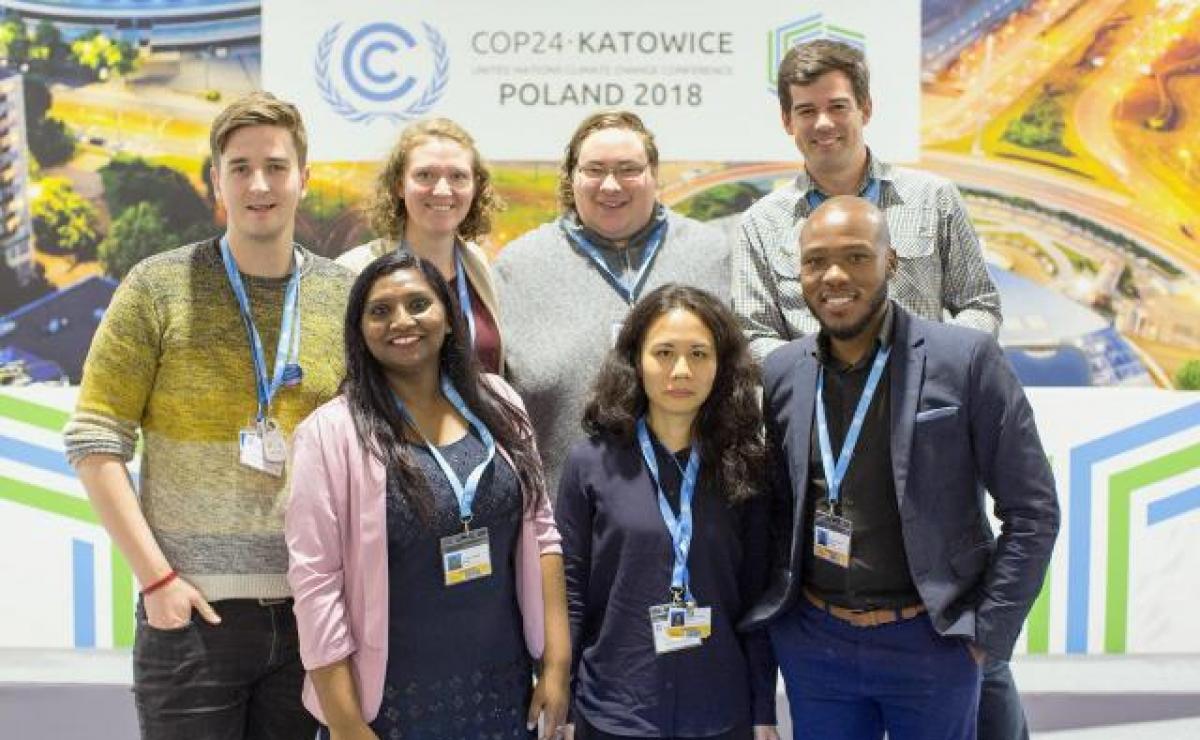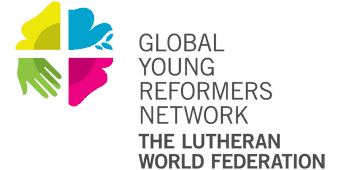Climate change destroys livelihoods and ecosystems, LWF delegates remind world leaders

Seven young people bring the Lutheran communion experience to COP 24
(LWI) -The planet’s future lies in the balance as world leaders, civil society and climate activists meet in Katowice, a coal mining town in Poland, to figure out how to implement the Paris Agreement on curbing climate change.
This week delegates at the 24th session of Conference of the Parties (COP 24) to the United Nations (UN) Framework Convention on Climate Change are wrestling with the small print of the global climate deal, the rule book on exactly how to cut emissions and transition to a low-carbon economy.
The Lutheran World Federation (LWF) has an all-youth delegation comprising seven climate activists from the communion’s member churches in Argentina, Germany, Iceland, Indonesia, Poland, South Africa and the United States. Supported by two LWF staff, the young people bring perspectives from their respective countries and regions about the experience of climate change. While some have participated in previous COP sessions, others are there for the first time.
Unpredictable rain for farmers in Minnesota, USA
Wylie Cook, LWF delegate from the Evangelical Lutheran Church in America, said, “In my home state of Minnesota, climate change directly affects farmers and their ability to maintain economic security. Farmers note that rain is no longer predictable and drought is frequent. When it does rain, the rain is so heavy that it decimates crops and floods fields.”
COP 24 is the first time that Cook is part of an LWF delegation to the annual UN climate conferences. Citing California where he currently resides, he says “drought has caused raging wildfires which not only displace people and destroy livelihoods, but also cause adverse health complications, including asthma and other respiratory problems in children, from smoke inhalation.”
Indonesia: Recurring landslides, drought and tsunamis
Gloria Samosir from the Protestant Christian Batak Church in Indonesia, also a first-time participant in a climate summit, underlines some key aspects of climate change in her country. “Indonesia is the largest archipelagic country in the world. The variety of people and cultures in its 17,000 islands is lamentably matched by a motley of natural disasters, from landslides, to earthquakes, to droughts, to floods, to tsunamis. Indonesia has it all.”
She says the country has a large -- but rapidly shrinking -- forest area, and therefore has an important role in global climate efforts. “But as a developing country, we need financial and capacity building support to help achieve our Nationally Determined Contribution to the global climate plan,” she adds.
A critical part of LWF’s sustained advocacy on climate justice is the call for solidarity with those who contribute the least to the causes of climate change, yet are often the most directly affected by its impact. During a meeting with Scotland's First Minister Nicola Sturgeon, LWF Youth secretary Pranita Biswasi was thanked specifically for her intervention, reminding the politicians of their responsibility to the poor and marginalized, the most vulnerable communities worldwide who are already suffering the impacts of climate change.
Relationship between politics and science
This is a crucial time for the relationship between politics and science. The recent 1.5 C report by the Intergovernmental Panel on Climate Change (IPCC) underlines the urgency of action on climate, and paints a dramatic picture of catastrophe and the existential threat of global warming to humanity. At the same time the world is seeing leaders who deny the existence of climate change being voted into office.
The Paris climate agreement, which has been ratified by 184 countries, set out a plan to keep global warming below a target threshold, well below 2C of temperature rise above pre-industrial levels. However, to keep global warming to a level that does not threaten the existence of the human and other species, unprecedented changes need to happen.
The IPCC report, the global scientific evaluation of climate change, points out that the 1.5C temperature rise has to be the top limit to avoid global catastrophe. Thus the Katowice meeting is expected to deliver a clear rule book to guide the world to safety.
The LWF delegation to COP 24 is made up of seven young climate activists from each of the communion's seven regions. The bring experiences and expertise in climate action, climate advocacy and theology of creation. A delegation of young people from the member churches represented the LWF at the annual conferences of the United Nations Framework Convention on Climate Change since COP 17 in Durban, South Africa.
Written for LWI by Sean T. Hawkey, edited by LWF Communications.
COP24
A delegation of young people from the member churches has been representing the LWF at the annual conference of the United Nations Framework Convention on Climate Change since COP 17 in Durban, South Africa. At COP 24, the seven delegates from each of the seven LWF regions, come with different experiences and expertise in climate action, climate advocacy and theology of creation.
